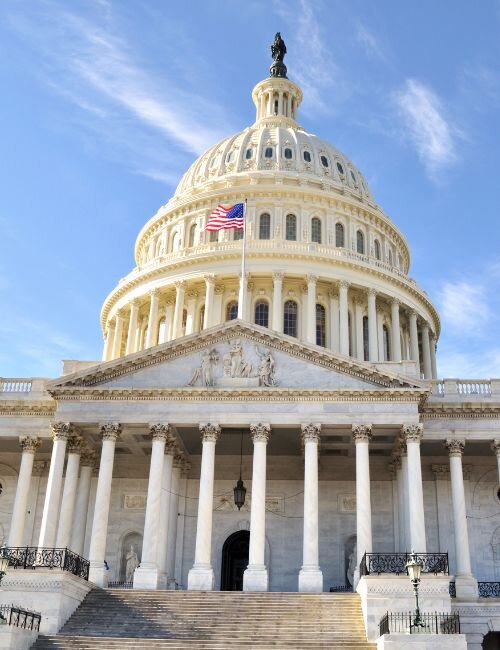
The Basics of Closing Costs for First-time Homebuyers
For first-time homebuyers in Washington looking to save money, understanding closing costs is essential. Closing costs are the various fees and charges associated with finalizing a real estate purchase, typically ranging from 2% to 5% of the home’s purchase price. A closing costs calculator can help estimate these fees and plan a home-buying budget more accurately.
These costs can include loan origination fees, title insurance, escrow fees, appraisal fees, and recording charges. In Washington, it’s crucial for buyers to familiarize themselves with these components early in the process.
By doing so, they can explore various strategies to reduce these costs, such as negotiating with lenders or sellers and taking advantage of available first-time homebuyer programs that might offer financial assistance or reduced rates. Understanding the breakdown of these expenses empowers buyers to make informed decisions and potentially save thousands at closing.
Understanding Closing Costs: a Comprehensive Guide
Understanding closing costs is crucial when navigating the Washington real estate market. These fees, which are incurred during the finalization of a property purchase, can significantly impact your financial planning. Serious Cash Offer can help you break down these costs and explore ways to minimize them, ensuring a smoother and more affordable transaction.
In Washington, closing costs usually include things like fees for getting the loan, title insurance, assessment fees, and escrow charges. Knowing about these costs helps buyers get ready, and they may be able to deal with sellers or lenders to lower them.
It is vital to review the Loan Estimate provided by your lender early in the homebuying process to understand expected fees and explore opportunities for cost reductions. Comparing offers from multiple lenders can also help uncover more favorable terms or lower fee structures.
Additionally, some costs may be negotiable between buyers and sellers, such as who covers certain title-related fees or transfer taxes. By gaining a comprehensive understanding of each component of closing costs and actively seeking ways to reduce them, buyers can make more informed financial decisions in their real estate transactions.
Hidden Fees: Breaking Down Common Closing Cost Components
When navigating the Washington real estate market, being aware of hidden fees in closing costs is crucial for minimizing expenses. Closing costs often include various components such as loan origination fees, appraisal fees, and title insurance.
Borrowers should pay close attention to the loan origination fee, which lenders charge for processing a mortgage application. Appraisal fees cover the professional assessment required to establish the property’s market value, while title insurance protects against potential legal disputes over property ownership.
Additionally, buyers may encounter recording fees charged by local government offices for documenting the transaction, along with other administrative charges like courier or notary fees. It’s essential for homebuyers to scrutinize their loan estimate and closing disclosure forms to identify these common cost components and negotiate with lenders or service providers when possible.
Washington homebuyers can effectively lower their total closing costs by understanding and planning for these hidden costs. Additionally, working with a company that buys homes in Spokane can simplify the process and reduce many traditional fees, making your transaction quicker and more cost-effective.
How Taxes and Insurance Impact Your Overall Closing Costs

When purchasing real estate in Washington, understanding how taxes and insurance influence closing costs is crucial for minimizing expenses. Property taxes in Washington can significantly impact the overall closing costs, as these taxes are often prorated and included in the settlement process.
Transfer taxes, which differ by county and add to the overall cost of purchasing a home, are another price that buyers must take into consideration. Furthermore, it is impossible to ignore homeowners insurance as a significant closing cost.
Lenders typically require buyers to secure a policy before finalizing a real estate transaction, ensuring protection against potential damages or losses. Shopping around for competitive home insurance rates can help reduce this part of the expense.
Furthermore, private mortgage insurance (PMI) may be necessary if you make a down payment of less than 20%, adding another layer to your closing costs. Understanding these elements allows Washington cash buyers to strategize effectively and potentially negotiate with lenders or sellers to lower their financial burden during the closing process.
The Role of Lenders in Determining Your Final Closing Amounts
Lenders play a crucial role in determining the final closing costs associated with real estate transactions in Washington. They assess several key factors, such as loan type and interest rate, which directly influence the overall cost structure.
When buyers shop around and compare different lenders, they can find better loan terms that may lower their closing costs. Lenders also give out thorough Loan Estimates that list all the possible costs, such as origination fees, appraisal fees, and credit report fees.
Buyers can negotiate specific rates or request waivers when appropriate by being aware of these estimations. Furthermore, some lenders provide incentives or programs that help qualifying purchasers reduce closing expenses.
It’s essential for homebuyers to maintain open communication with their lender to identify areas where they can potentially lower fees and better manage their financial commitments during the closing process.
Title Insurance: Is It Necessary and How Does It Affect Costs?
Title insurance is an important part of buying and selling real estate in Washington because it protects buyers and lenders against problems with the title. Some people may wonder if this cost is really necessary, but knowing why it’s there can help you see how important it is for reducing future legal risks.
Title insurance helps ensure that the property title is clear of liens, encumbrances, or other issues that could jeopardize ownership. Although the upfront cost of title insurance adds to closing costs, it can prevent significant financial strain by covering legal fees and losses arising from undiscovered title problems.
Buyers can compare prices on title insurance plans to find the best deal. This could help lower the total closing costs while still giving them piece of mind about the safety of their investment.
Appraisal Fees Explained: Their Place in the Closing Process
In the Washington real estate market, understanding appraisal fees is crucial for minimizing closing costs effectively. Appraisal fees are a significant component of the closing process, as they determine the current market value of a property, which influences both buyers and lenders.
In Washington, the cost of these services can change depending on things like the size, location, and difficulty of the property. You can get better terms from lenders or sellers if you know how much appraisals usually cost in your area.
It’s also beneficial to request an appraisal waiver from your lender if the property’s equity or market conditions support it. Additionally, comparing quotes from different appraisers and selecting one that offers competitive rates without compromising quality can further reduce expenses.
Keeping closing costs under control and streamlining the real estate transaction are two benefits of being proactive and knowledgeable about appraisal fees. Learn how our process works to better prepare for each step so you can successfully handle these fees and steer clear of needless expenses.
Credit Reports, Surveys, and Other Smaller Yet Significant Fees
When navigating the Washington real estate market, being aware of smaller yet significant fees like credit reports and surveys can be crucial in minimizing closing costs. Credit report fees are a necessary expense during the mortgage approval process, but savvy buyers might reduce these costs by obtaining their own credit report beforehand, allowing them to address any discrepancies proactively.
Surveys, which verify property boundaries, are another potential cost—though some buyers may find that an existing survey is adequate or negotiate for the seller to cover this expense. Additionally, other small fees such as document preparation and recording fees can add up quickly.
Another possible expense is a survey, which confirms the boundaries of the property. However, some buyers may decide that an existing survey suffices or bargain for the seller to pay for this. Other minor costs, including those for recording and document preparation, might also mount up rapidly.
Legal Considerations: Attorney Fees as Part of Closing Costs
Knowing the legal factors pertaining to closing fees is essential for cutting costs when buying real estate in Washington. Attorney fees are a major part of these expenses and can vary greatly based on the services needed and the intricacy of the transaction.
To effectively reduce these fees, potential homebuyers should consider negotiating rates with their real estate attorney or opting for a flat fee arrangement instead of an hourly rate. Additionally, some real estate transactions in Washington may not legally require an attorney’s presence at closing, allowing buyers to potentially waive this expense if they are confident in handling certain aspects independently.
To guarantee a seamless transaction, it is crucial to balance the advantages of legal advice against any possible hazards. Finding chances to reduce needless expenses while maintaining compliance with Washington real estate laws can also be facilitated by being aware of state-specific legislation and seeking early advice from an experienced expert.
How Loan Type Influences the Structure of Your Settlement Charges
When purchasing real estate in Washington, the type of loan you choose can significantly impact your settlement charges and overall closing costs. Conventional loans often require buyers to cover various fees, including origination charges and private mortgage insurance (PMI), which can drive up closing expenses.
On the other hand, government-backed loans like FHA and VA loans usually have lower down payment requirements and lower PMI payments, which could cut your upfront costs. The total amount owed at closing may also be different for each loan type because of different appraisal costs and lender-specific fees.
Understanding these differences is crucial for buyers looking to strategically reduce their financial outlay during the settlement process. By carefully evaluating the terms and conditions associated with each loan option, borrowers can identify opportunities to save on escrow fees, title insurance, and other ancillary expenses that contribute to closing costs in Washington’s competitive real estate market.
Escrow Accounts and Their Influence on Your Final Payment

In the Washington real estate market, understanding the role of escrow accounts can significantly impact your final payment by minimizing closing costs. An escrow account acts as a neutral holding space where funds are kept before the transaction is finalized, ensuring that all financial obligations are met by both the buyer and seller.
By carefully managing this account, buyers can effectively reduce closing costs. One strategy to lower these expenses is negotiating with lenders to limit escrow reserves, thereby decreasing the amount required upfront.
Another way to save money is to pay attention to how the escrow accounts for property taxes and insurance fees. Sometimes, choosing lending credits over loans with a slightly higher interest rate can also help cover the costs of setting up an escrow account.
Buyers should diligently review all statements related to their escrow to avoid errors that could inflate their final payment. Understanding these nuances allows Washington homebuyers to optimize their closing process and keep extra funds in their pockets.
Understanding Reserves and Prepaid Items as Part of Closings
If you want to buy a house in Washington and keep your closing costs as low as possible, you need to know about reserves and reserved items. Reserves are usually the money that the lender sets aside to cover future costs like property taxes and homeowner’s insurance. This makes sure that these responsibilities are met on time.
Prepaid items, on the other hand, include advance payments made before the closing date for services such as mortgage interest or homeowner’s insurance premiums. By accurately estimating these costs and negotiating with lenders or sellers, buyers can reduce their financial burden at closing.
Also, looking into the requirements for an escrow account and getting advice from a real estate agent who knows the Washington market well can help you handle these costs more effectively. Understanding how reserves and prepaid items affect the total closing costs gives owners the power to make smart choices and possibly negotiate better terms with lenders, which saves them money in the long run.
Refinancing and Its Effect on Your Total Closing Expenses
Refinancing your mortgage in Washington can significantly impact your total closing expenses, often providing opportunities to minimize these costs. When refinancing, it’s important to shop around and compare offers from multiple lenders, as this can lead to competitive rates and reduced fees.
Some lenders may let you refinance without paying any closing costs. This means that the closing costs are either added to the loan amount or a slightly higher interest rate is paid in exchange. It’s also important to know which fees can be discussed. For example, appraisal fees, title insurance fees, and origination fees can sometimes be lowered.
Homeowners should also consider the timing of their refinance—doing so when market conditions are favorable could result in lower overall expenses. By being proactive and well-informed during the refinancing process, homeowners can effectively reduce their closing costs while securing a better mortgage deal in Washington’s real estate market.
Strategies to Minimize Closing Costs in Real Estate Transactions
There are a number of good ways to keep closing costs as low as possible when buying or selling a home in Washington. First, it’s important to compare loans and title companies’ fees because they can be very different. Shopping around can save you a lot of money.
Negotiating with the seller to cover a portion of the closing costs is another viable option, especially in a buyer’s market where sellers may be more willing to accommodate requests. Opting for a no-closing-cost mortgage might also be beneficial, although this typically results in a slightly higher interest rate or increased loan balance.
Buyers should also carefully read the Loan Estimate document their lender gives them to find any extra costs that could be lowered or even removed. Also, using state-specific programs that help first-time homebuyers or veterans can help you save money at closing.
By leveraging these strategies, buyers can effectively lower their financial obligations at the closing table in Washington real estate deals.
Negotiating Tactics to Reduce Your Closing Costs Effectively
When looking to effectively reduce your closing costs in Washington real estate, employing strategic negotiation tactics is essential. Start by carefully reviewing the loan estimate provided by your lender, as this document outlines all potential fees associated with closing.
Finding any unneeded or inflated charges gives you a starting point for negotiation. Talk to your lender about lowering or getting rid of some fees, like application or processing fees, which are occasionally negotiable.
Additionally, as part of your buying offer, think about asking the seller to help with closing costs. In a buyer’s market, where sellers are more eager to complete transactions as soon as possible, this strategy may work very well.
Another approach is to shop around for service providers like title companies and home inspectors, as their rates can vary significantly and impact overall costs. By obtaining multiple quotes and comparing services, you can leverage lower prices during negotiations.
Finally, inquire about available discounts or special programs that may apply to first-time homebuyers or veterans, which could further decrease your expenses at closing.
Can I Avoid Paying Closing Costs?
When exploring effective ways to minimize closing costs in Washington real estate, it’s natural to wonder if you can avoid paying these fees altogether. While it is unlikely to completely eliminate closing costs, there are strategic methods to significantly reduce them.
One approach is to negotiate with the seller to cover a portion of the closing costs as part of the purchase agreement. Additionally, shopping around for competitive mortgage rates and lender fees can help lower overall expenses.
Using no-closing-cost mortgages is also a good idea. With these, the lender pays the closing fees up front in exchange for a slightly higher interest rate. By going over and understanding each line item in your Loan Estimate, you can find any extra fees or places where you might be able to negotiate.
Finally, first-time homebuyer programs and local government assistance may offer credits or grants that can offset certain closing expenses, making it crucial for buyers in Washington real estate markets to explore all available resources.
What Are the Average Closing Costs for a Buyer in Washington State?

Real estate buyers in Washington State should know how much the usual closing costs are before they buy a home. In Washington, closing costs for buyers are usually between 2% and 5% of the price of the home.
Buyers in Washington State should know the typical closing expenses for real estate transactions before making a purchase. In Washington, closing fees for purchasers typically fall between 2% and 5% of the purchase price of the house.
Understanding these expenses is crucial for buyers aiming to budget effectively and minimize their financial outlay during the home-buying process. By negotiating certain fees with lenders or opting for services bundled by real estate professionals, buyers can find ways to reduce these costs significantly.
Awareness of state-specific regulations and leveraging local knowledge can also aid in identifying potential savings on closing costs in Washington’s competitive real estate market.
Is There Any Way Around Closing Costs?
When purchasing real estate in Washington, many buyers seek effective ways to minimize closing costs. While it’s challenging to completely avoid these fees, there are strategies to reduce them significantly.
One approach is to negotiate with the seller to cover a portion of the closing costs as part of the purchase agreement. Buyers can also explore lender credits, where the lender covers some expenses in exchange for a slightly higher interest rate on the mortgage.
Additionally, shopping around for title insurance and other services can lead to cost savings, as prices can vary between providers. First-time homebuyers should look into state and local programs that offer assistance or grants specifically aimed at reducing closing costs.
It’s crucial for buyers to carefully review their Loan Estimate document, which outlines all potential fees, allowing them to identify unnecessary charges that can be negotiated or eliminated. By employing these strategies, Washington homebuyers can effectively manage and potentially decrease their closing costs while navigating the real estate market.
What If I Don’t Have Enough Money for Closing Costs?
If you find yourself short on funds to cover closing costs in Washington real estate transactions, there are several effective strategies to consider. One option is negotiating with the seller for assistance with closing costs, which can sometimes be included as a credit during negotiations.
Additionally, exploring programs specifically designed for homebuyers, such as first-time homebuyer grants or loans that offer reduced closing cost requirements, can provide significant relief. Another avenue is to work closely with your lender to discuss rolling the closing costs into your mortgage; while this may increase the loan amount slightly, it spreads the expense over time.
Furthermore, seeking out lenders who offer no-closing-cost mortgages might also be an attractive solution, although it’s essential to understand that this may result in higher interest rates. By strategically utilizing these methods, prospective homebuyers in Washington can better manage their financial resources and minimize the burden of closing costs effectively.
Helpful Washington Blog Articles
- Essential Documents For Selling Your House In Washington
- Understanding Washington’s Property Tax Rates For Homeowners And Real Estate Investors
- Guide To Selling Your House During A Divorce In Washington
- How To Legally Sell Your Parents’ House In Washington Using Power Of Attorney
- How To Successfully Sell A Fixer-upper Home In Washington’s Real Estate Market
- Understanding Hoa Fee Management During Real Estate Closings
- Do All Heirs Have to Agree to Sell Property in Washington?
- FSBO in Washington: A Cost Guide for Home Sellers
- Effective Ways To Minimize Closing Costs In Washington
- Can you sell a house with a mortgage in Washington
- Can A Seller Legally Back Out Of A Real Estate Contract In Washington?
- Selling Your House For Less Than Appraised Value In Washington
- Guide To Selling An Inherited House In Washington
- Selling A Fixer-upper Home In Washington State
- Selling Your Washington House As-is Without Repairs
- How Long After an Appraisal Can You Close in Washington
- Selling Home with Reverse Mortgage in Washington

| MORTGAGE LOAN | LENDING | THE STATE OF WASHINGTON | SEATTLE | SEATTLE, WA | ESCROW SERVICES |
| TAX PAYMENTS | REAL ESTATE PROFESSIONALS | LISTING BROKER | REAL ESTATE BROKER | BROKER | INFORMATION |
| HOMEOWNER’S ASSOCIATION | HOMEOWNER ASSOCIATION | HOA | INSURANCE COMPANIES | ICON | ESTATE PROFESSIONAL |
| CASH | HOMEOWNERSHIP | TACOMA | MEDIAN HOME PRICE | HOME APPRAISAL | FATHOM REALTY |
| BELLEVUE | NWMLS | COPYRIGHTED | COPYRIGHT | COMPANY | |
| BLOGGING | BLOG | TRANSFER FEES | TITLE SEARCH | SAMMAMISH | SAMMAMISH MORTGAGE |
| REDMOND | REALTY | MULTIPLE LISTING SERVICE | EVERETT | CREDIT SCORE | CREDIT CARD |
| ARE CLOSING COSTS | CLOSING COSTS CAN | THE COST OF | OF YOUR CLOSING COSTS | A HIGHER INTEREST RATE |
